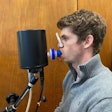
For patients with stable COPD, something as simple as filling out a 10-question questionnaire on a regular basis could boost their quality of life and improve symptom control. That’s according to a study recently published in the International Journal of Chronic Obstructive Pulmonary Disease.
“Insufficient knowledge about COPD in COPD patients leads to delayed disease self-recognition in (the) early stage and eventually leads to delayed diagnosis, disease progression and worsening condition,” the researchers wrote. “A study demonstrated that providing COPD patients with a comprehensive patient education program led by health care professionals can significantly reduce health care utilization and improve health outcomes. Therefore, more attention shall be paid to the disease management plans and prioritizing patient-centered education.”
The researchers designed a 10-item COPD self-evaluation questionnaire and applied it in the education of patients with stable COPD. Study participants were randomly assigned to control and intervention groups, with the intervention group receiving the questionnaire monthly over a six-month period.
The questionnaire included inquiries about COPD risk factors and symptoms, diagnostic tests, medication usage and quitting smoking.
The Final Version of COPD-ES Questionnaire and Related Reliability and Validity Testing
 https://doi.org/10.2147/COPD.S484979
https://doi.org/10.2147/COPD.S484979
After six months, the researchers reported that the smoking rate dropped from 60% to 20%. In addition, 100% of patients in the intervention group reported medication adherence, compared to 12% at the start of the study. The patients also reported an improvement of symptoms and a reduction in exacerbations.
“Application of this custom questionnaire in educational interventions for stable COPD patients confirmed that this patient-centered approach significantly enhanced disease knowledge, increased smoking cessation rates and medication adherence and improved symptom control and quality of life,” the researchers wrote. “And this could give rise to the construction of a more time- and labor-saving self-management strategy for stable COPD patients.”























